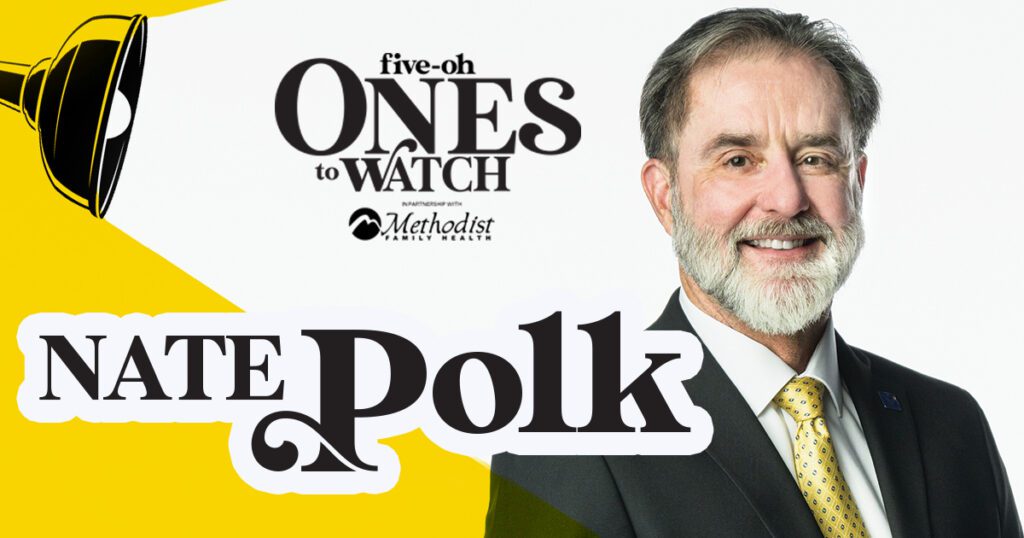30 Dec 2023 Five-Oh-Ones to Watch 2024: Nate Polk, Unity Health – Jacksonville
Nate Polk has lived a life of service, much of it in difficult circumstances. A 26-year U.S. Air Force veteran, he served in the fight against terror and was eventually reassigned to Arkansas to aid his father, who was dying of cancer. The veteran gravitated toward the respiratory field, where four years ago he spent his days among the sickest of the sick with COVID, which claimed his own daughter, Misha, in 2021.

Yet the 63-year-old, who recently came to Unity Health in Jacksonville after serving for years with the system’s Searcy location, is still inspired by the good he gets to do in his job as cardiopulmonary supervisor.
“The thing I enjoy most about the job is like, today, I had a girl call in sick so I get to work as a therapist,” he said. “I like patient interaction and getting to talk to and know people.”
Polk discovered his vocation by accident. Just ahead of retiring from the service, he worked for the state veterans administration in IT at Fort Roots in North Little Rock. He was assigned to Little Rock’s John L. McClellan Memorial Veterans Hospital’s respiratory department and was hooked. Graduating from the respiratory program at the University of Arkansas-Pulaski Technical College, he landed with Unity in 2010.
Polk said while respiratory therapists are generally associated with specific diseases such as COPD or COVID, their reach is far broader in the day-to-day operation of a hospital.
“As cardiopulmonary supervisor, I have four full-time employees and about eight part-time employees,” he said. “We run a 13-bed emergency department, we have five overnight beds and there’s a 24-bed psych unit here as well.
“Our ER averages 40-something patients a day; we had 55 the other day and that was a record. If we have to sedate and intubate someone and put them on a ventilator, we’re the ones that manage that, whether it’s a full-blown ventilator, which is invasive with tubing in your throat, or if it’s a BIPAP/CPAP. We probably see just about every single patient that comes through the door because we also do the cardiac side of the house, which is the EKGs and stuff.”
In addition to the patient-facing aspects of the job, Polk also has a passion for teaching, putting medical interns through their paces as they learn about his particular specialty.
“We have a teaching hospital in Searcy, and I’ll go in and teach them courses on ventilation,” he said. “I break down the simple stuff, anything from oxygen all the way through to the mechanical ventilation.” Through all these interactions, Polk gets to stress the vital importance of his medical specialty, be it in emergency or chronic situations.
“I’m most proud of being able to help patients breathe better,” he said. “You can go almost a month without eating anything substantial and you can make it about five, six, seven days without water, but you’ve got four minutes without breathing before you’re brain dead or damaged, at least. That’s where respiratory therapists come in.”








